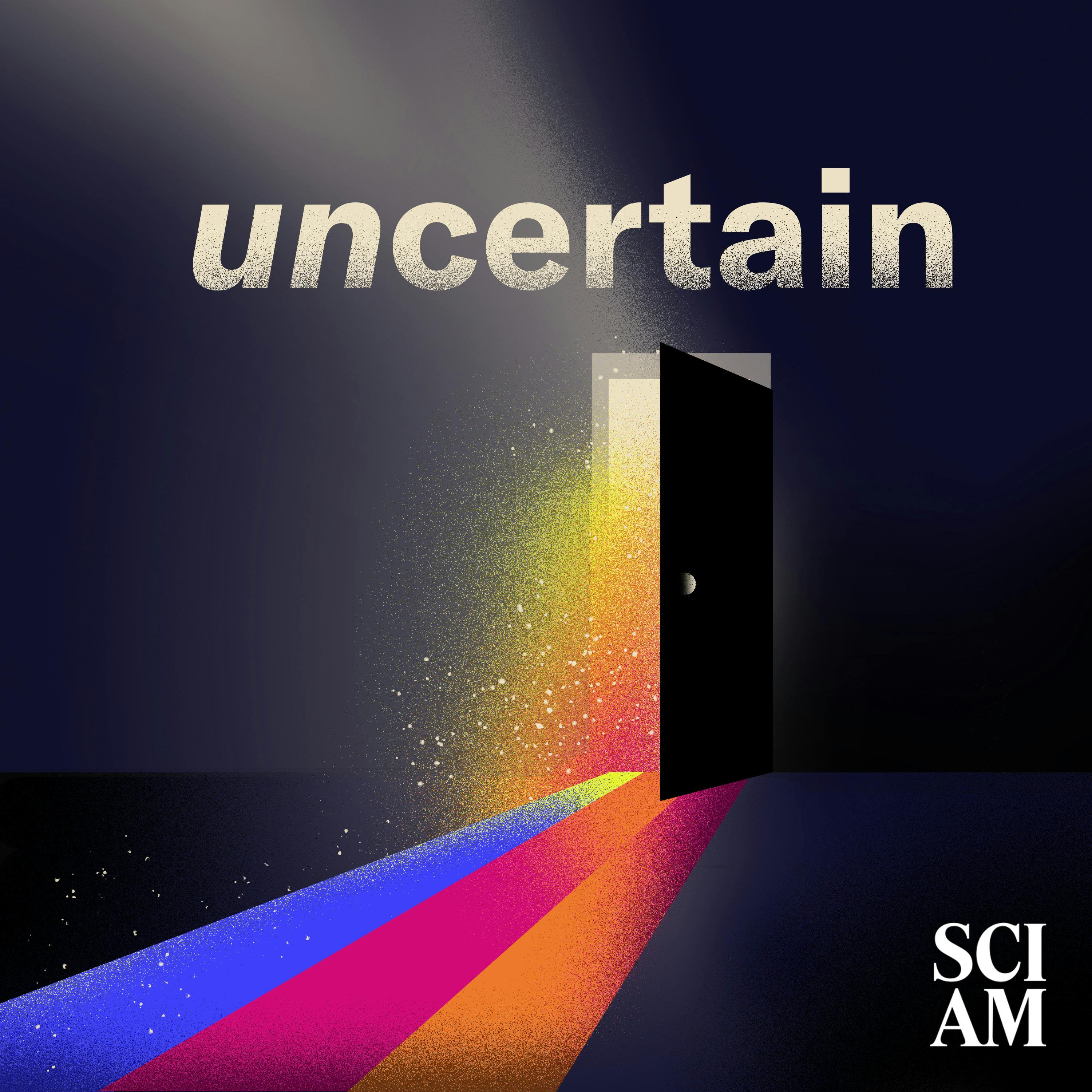

Science Talk
Scientific American
Science Talk is a podcast of longer-form audio experiments from Scientific American--from immersive sonic journeys into nature to deep dives into research with leading experts.
Episodes
Mentioned books

Oct 24, 2007 • 27min
Good Germs, Bad Germs
In this episode, journalist Jessica Snyder Sachs, author of the new book Good Germs, Bad Germs: Health and Survival in a Bacterial World, talks about the complex relationships between you and the numerous single-celled critters that live on and in you. Plus we'll test your knowledge of some recent science in the news. Websites mentioned on this podcast include: jessicasachs.com Learn more about your ad choices. Visit megaphone.fm/adchoices

Oct 17, 2007 • 27min
Chickens and Pigs and Yeast, Oh My!: The Public Health Threat of Animal Diseases; and Gene Duplication in Evolution
In this episode, Scientific American news editor Phil Yam discusses how veterinarians, physicians and multinational food companies need to work together in the global fight against animal-borne infectious diseases; and University of Wisconsin evolutionary biologist Sean Carroll talks about recent research tracking the evolution of yeast genes with specific functions descended from a single, duplicated gene with multiple functions. Plus we'll test your knowledge of some recent science in the news. Websites mentioned on this podcast include: tinyurl.com/2rb37v; tinyurl.com/2sj6bf; seanbcarroll.com Learn more about your ad choices. Visit megaphone.fm/adchoices

Oct 10, 2007 • 26min
When Worlds Collide: The Ig Nobel and Nobel Prizes
In this episode, Ig Nobel Prize maven Marc Abrahams discusses this year's crop of "winners." And we'll review the recipients of the 2007 real Nobel Prizes in science. Plus we'll test your knowledge of some recent science in the news. Websites mentioned on this podcast include: www.improbable.com; tinyurl.com/3bblmt; www.amnh.org; tinyurl.com/26z8wv Learn more about your ad choices. Visit megaphone.fm/adchoices

Oct 3, 2007 • 24min
The Final Frontier: Our Future in Space
In this episode, Scientific American editors George Musser and Steven Ashley discuss the special section of the October issue devoted to the future of space exploration. Plus we'll test your knowledge of some recent science in the news. Learn more about your ad choices. Visit megaphone.fm/adchoices

Sep 26, 2007 • 31min
Who Do You Think You Are: Chatting With Bots, and the Sexuality Spectrum
In this episode, pyschologist Robert Epstein talks about his articles in the upcoming issue of Scientific American Mind, on being fooled by a chatterbot--a computer program designed to make you think you're communicating with a human--and on the spectrum of human sexuality. And he has some comments about the CBS TV program "Kid Nation." Plus we'll test your knowledge of some recent science in the news. Websites related to this episode include www.audible.com/sciencetalk; www.drepstein.com; www.sciammind.com; blog.sciam.com; www.news.wisc.edu/14162 Learn more about your ad choices. Visit megaphone.fm/adchoices

Sep 19, 2007 • 25min
What's In A Rose: Ethnobotany and the Search for Useful Plants
In this episode, ethnobotanist Nat Bletter talks about his field and his recent article about the new plant family Simulacraceae--the phony plants. Plus we'll test your knowledge of some recent science in the news. Websites related to this episode include www.audible.com/sciencetalk; www.simulacraceae.org; www.tinyurl.com/2gqgnb; www.tinyurl.com/2obv6k Learn more about your ad choices. Visit megaphone.fm/adchoices

Sep 12, 2007 • 25min
Can Fat Be Fit?
In this episode, award-winning journalist Paul Raeburn talks about his article in the September issue of Scientific American, called "Can Fat Be Fit?" as well as another piece he wrote as a sidebar to a feature, about losing weight and keeping it off. Plus we'll test your knowledge of some recent science in the news. Websites related to this episode include www.audible.com/sciencetalk; www.paulraeburn.com Learn more about your ad choices. Visit megaphone.fm/adchoices

Aug 29, 2007 • 23min
Another Look at The World Without Us; and What's New At Scientific American
In this episode, journalist Alan Weisman continues his discussion (started on the June 27th podcast) about his bestselling book "The World Without Us," a massive thought experiment about the aftermath of humanity's sudden disappearance. And Scientific American editor-in-chief John Rennie discusses what's up at the magazine. Plus we'll test your knowledge of some recent science in the news. Learn more about your ad choices. Visit megaphone.fm/adchoices

Aug 22, 2007 • 23min
The World Is Fat: Obesity Now Outweighs Hunger WorldWide
In this episode University of North Carolina Chapel Hill nutrition epidemiologist Barry Popkin discusses the growing problem of obesity, even in developing countries that only recently faced hunger as their primary diet challenge. Popkin is the author of the article The World Is Fat in the September Scientific American. Plus we'll test your knowledge of some recent science in the news. Websites mentioned on this episode include: www.nutrans.org; wwwtheskepticsguide.org Learn more about your ad choices. Visit megaphone.fm/adchoices

Aug 15, 2007 • 23min
Is Your Food Contaminated; New Orleans Now; And the Science of Dogs
In this episode Scientific American editor Mark Fischetti talks about the challenges of keeping the food supply safe and about the state of New Orleans hurricane preparedness. And journalist Jackie Mow discusses her new TV show about the science of dogs. Plus we'll test your knowledge of some recent science in the news. Websites mentioned on this episode include: channel.nationalgeographic.com/channel/explorer; www.theskepticsguide.org Learn more about your ad choices. Visit megaphone.fm/adchoices


